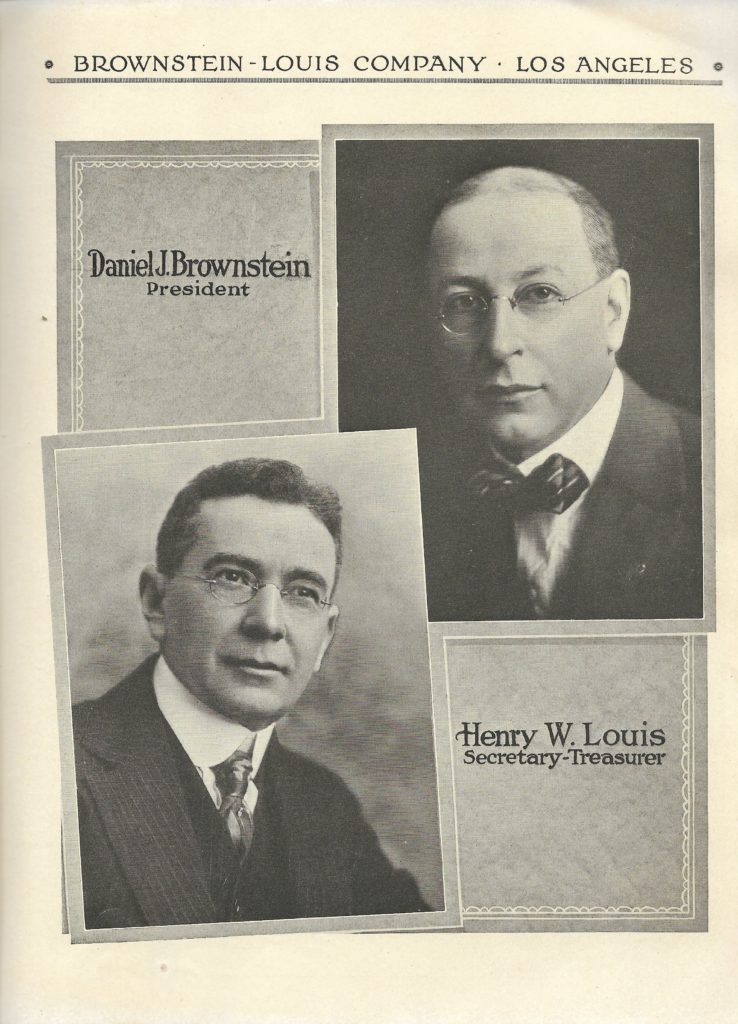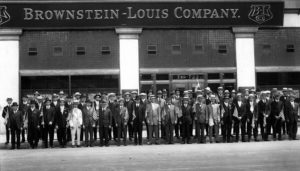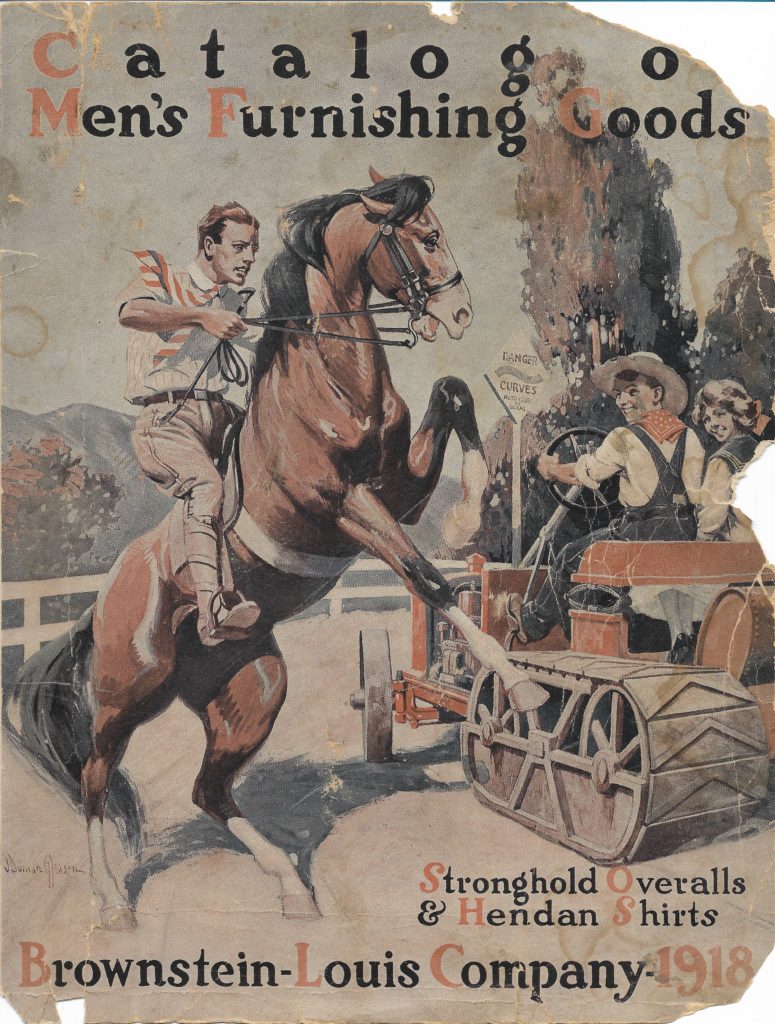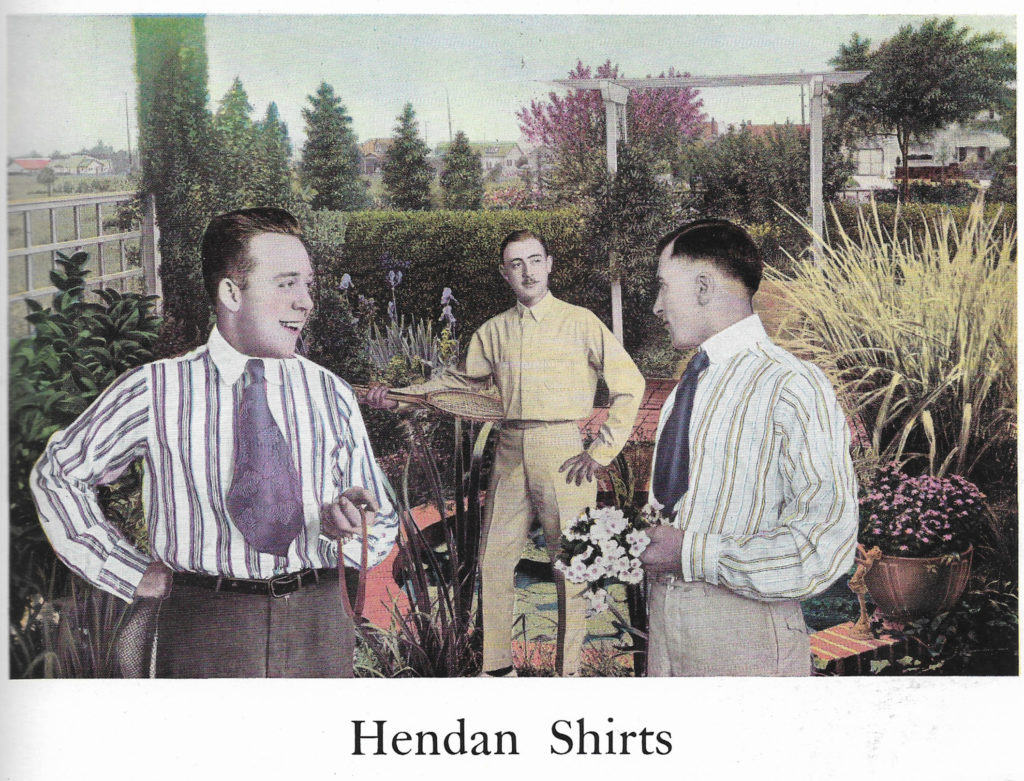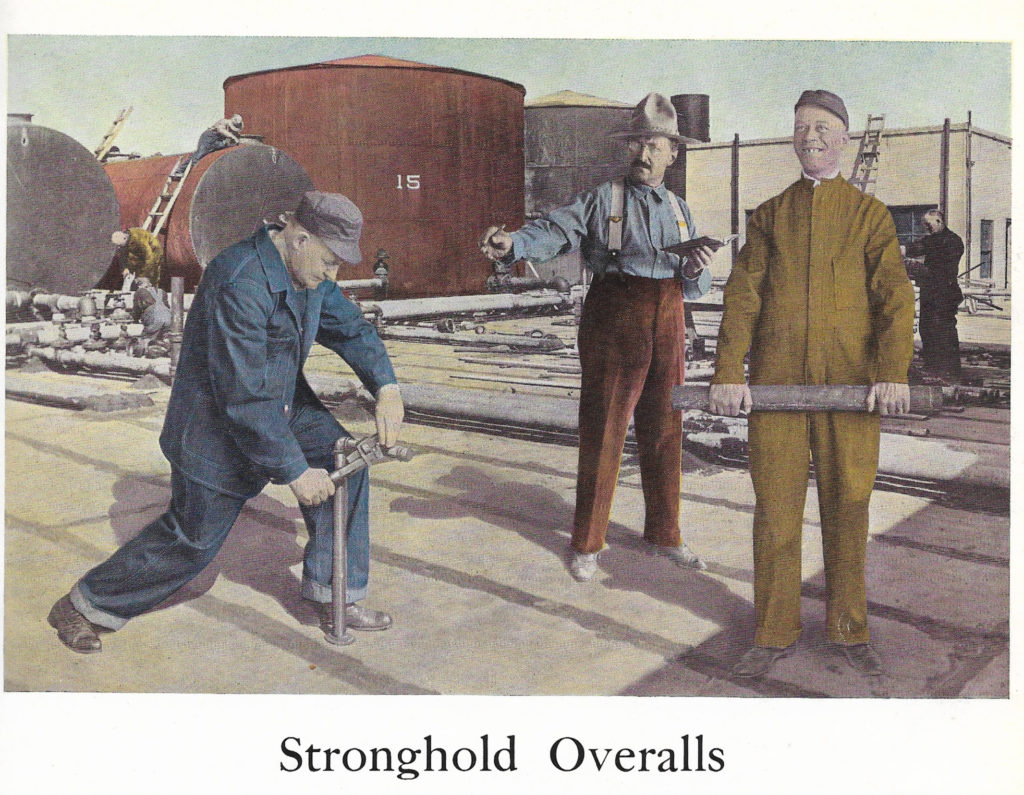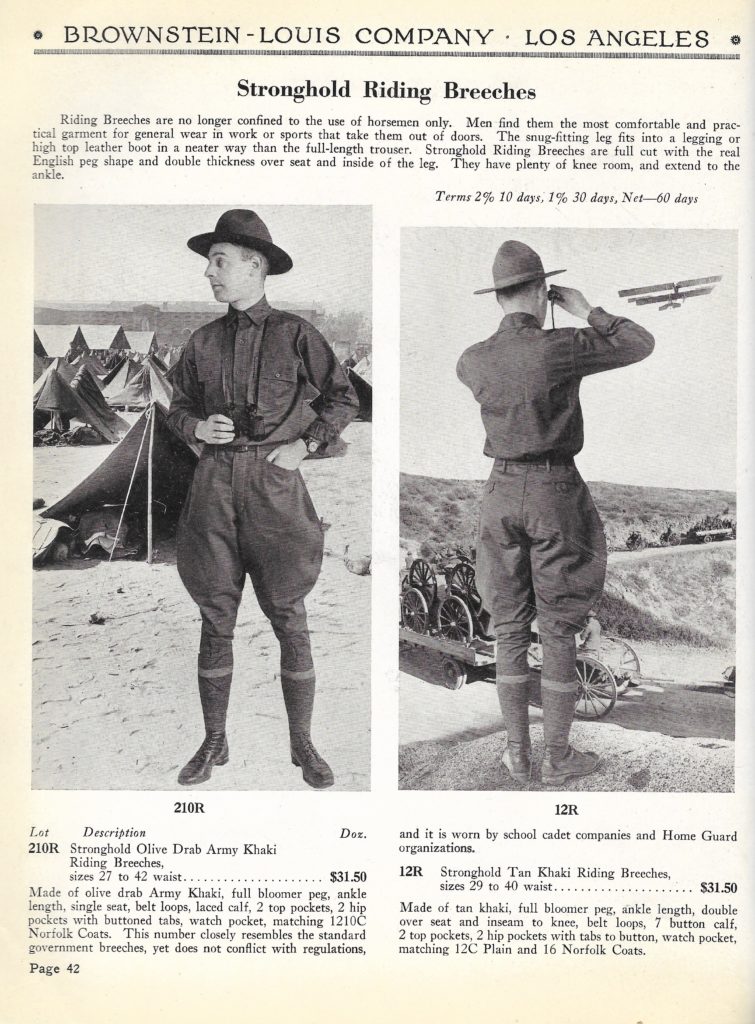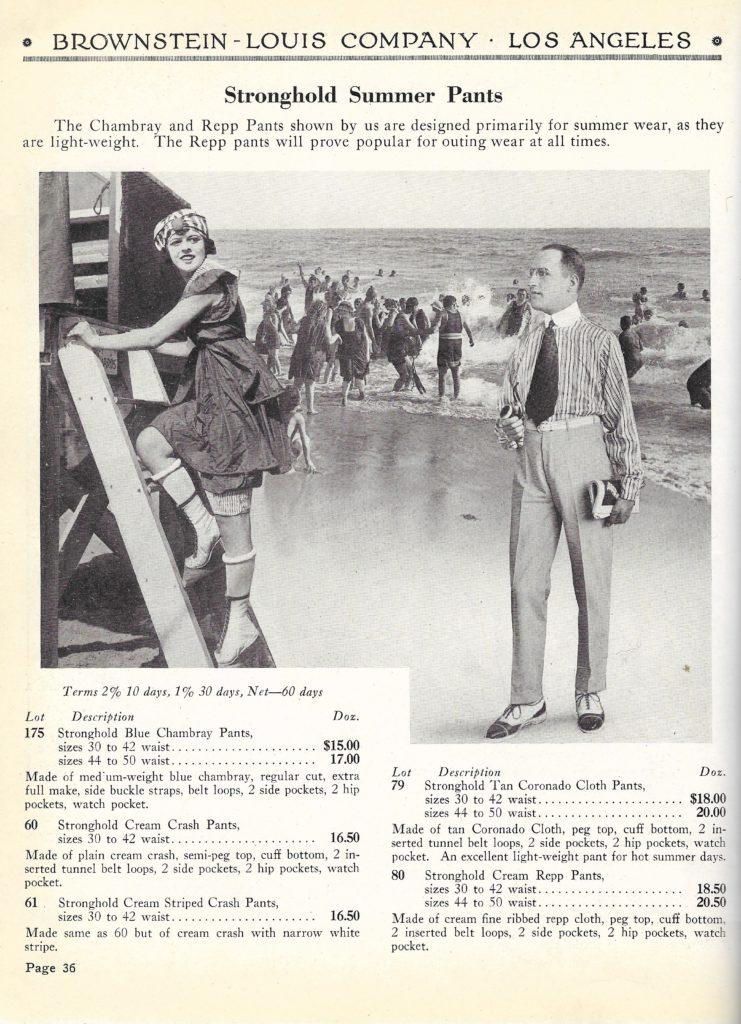Brownstein-Louis Company of Los Angeles
Daniel J. Brownstein and his eventual business partner, Henry W. Louis, worked for Jacoby Bros. men’s clothing store in Los Angeles in the early 1890s.
In 1895, Brownstein and a cousin, Philip Newmark (of Los Angeles’ prominent Newmark family), set out to establish a wholesale men’s clothing store. Kaspare Cohn, a successful landowner, city builder, and a Newmark cousin, promised them a $10,000 loan if they took in Henry W. Louis as a partner.
By 1898, Brownstein, Newmark & Louis was manufacturing work clothes and specializing in overalls. The company was the first in Los Angeles with a unionized garment shop.
Philip Newmark left Brownstein, Newmark & Louis in 1910 to start his own firm. Brownstein-Louis Co. was incorporated later that year.
Workers at Brownstein-Louis Co. are pictured below prior to marching in the World War I Preparedness Day parade in 1917. They are standing in front of the company building at 716-722 South Los Angeles Street. A new factory was built in 1921 at the northwest corner of 8th and Figueroa Streets (745 Figueroa St.).
In addition to work clothes, Brownstein-Louis Co. manufactured trousers, shirts of all kinds, hunting clothes, c jackets, coats, handkerchiefs, gloves, belts, gloves, socks, and more. According to some sources, the company was responsible for developing the sportswear industry.The firm’s sportshirt line was named “Hendan,” from the founders’ first names, Henry and Daniel. The work clothes line was called “Stronghold.”
The photograph Below, taken at a Boyle Heights movie studio in 1917, shows (left to right) Larry Lewin, Charlie Chaplin, Edna Purviance, and Ross Lewin. Purviance was one of Chaplin’s leading ladies, starring in The Floorwalker (1916), among other films. Brothers Laurence and Ross Lewin worked at Brownstein-Louis Co., which supplied the fledgling film industry. Charlie Chaplin wore Stronghold bib-overalls in Modern Times (1936), as did Henry Fonda in The Grapes of Wrath (1940).
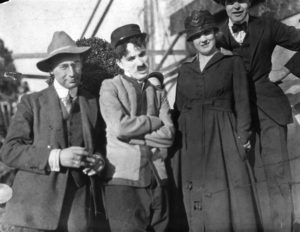
Larry Lewin, Charlie Chaplin, Edna Purviance, Ross Lewin, Brooklyn Ave. Studio, Boyle Heights, Los Angeles [1917], #WS1141
In 2004, the Stronghold Brand was relaunched in Los Angeles under new management. All of the components — including rivets, buttons, labels, and fabrics — are reproductions of the originals, based on the Brownstein-Louis archives.
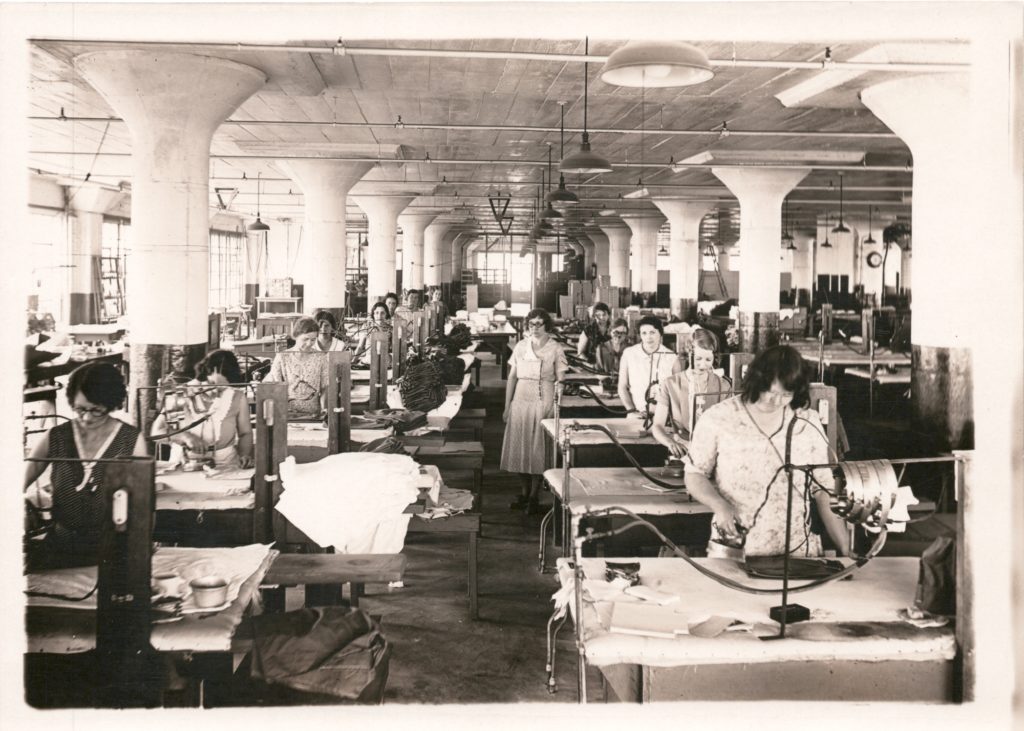
Pressing Room of the Brownstein-Louis Co. Building, Los Angeles, 1932. From the private collection of Sue O’Rourke, whose great-aunt is pictured fifth from the front on the left side.
1918 Catalog of Men’s Furnishing Goods
Brownstein-Louis Co. produced annual catalogs of its “Men’s and Boy’s Furnishing Goods of Quality” for retailers.
The Jewish Museum of the American West recently acquired a company catalog from 1918, which includes 166 pages of photographs, listings, wholesale prices, detailed descriptions, and order forms (regular and rush).
The catalog begins with the company’s business philosophy:
Every man receives, within certain bounds and excepting calamities, pretty much what he earns, very little more or less. If this were not so, the world would be a topsy-turvy world, and only the strongest and greediest would survive. The divinity of business decrees that every man should receive a just profit and an equitable wage for his time and effort. It is on these terms that business must be transacted.
There is an old Latin maxim still employed in legal circles, Caveat emptor—let the buyer beware.
For this maxim we have little patience. It puts a premium on deceit and implies that every seller is an imposter at heart. It should be written, Caveat vendor—let the seller beware.
Upon the seller rests the whole burden of the transaction. It is only the shortsighted who seek a price for an article beyond its real value, or who endeavor to cloak the poor qualities of merchandise in a manner to deceive the buyer. No enduring structure can be built on such transactions. They are the husks of business.
Sources
- Norton B. Stern, “Brownstein-Louis Company: Report of an Interview with Mr. and Mrs. Julian Cole,” Western States Jewish History 41/3.
- Brownstein-Louis Company, 1918 Catalog of Men’s Furnishing Goods: Stronghold Overalls & Hendan Shirts (Los Angeles, 1918).
- “A Brief History of the Stronghold,” The Stronghold, https://thestronghold.com/pages/a-brief-history-of-the-stronghold
Jonathan Friedmann is curator for this Brownstein-Louis Co. exhibit.
